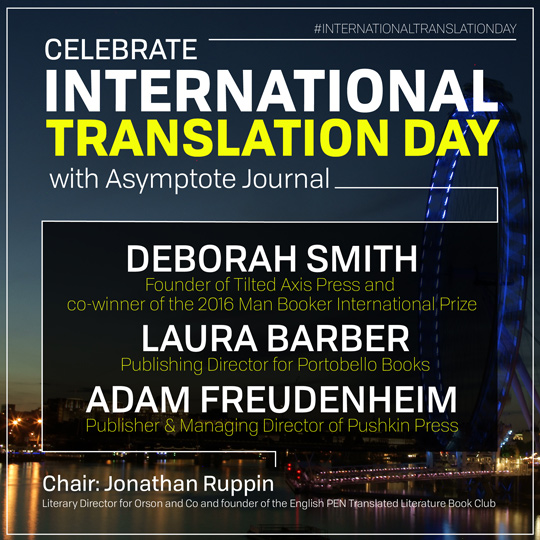This week, the Asymptote team takes us across the globe for updates on all things literature. From the inaugural launch of a book fair in Japan, to the appearance of a popular novelist and throat singer at a book festival in Sweden, to the commemoration of a prolific poet and dear friend in Scotland, read on to learn more.
Bella Creel, Blog Editor, Reporting from Japan
Tomorrow, March 22, Kobe, Japan will see its first ever KOBE BOOK FAIR & MARKET, held on Rokkō Island with over sixty vendors, some bookish and some local food booths. While the majority of participating booksellers and publishers are based in the Kyoto-Osaka-Kobe metropolitan district, companies from across the country will amass tomorrow to promote literature and reading as part of the Kobe BOOK Culture Revitalization Project, created in response to the dwindling number of bookstores in recent years.
The fair will feature four panel events, including a tell-all on the nitty-gritty of running a bookstore and a deep dive into the production of local magazines. The former will bring together three booksellers working in markedly different environments: Tatsuya Isogami from toi books, a small local bookstore, Osamu Horiuchi from the gargantuan bookseller Junkudo, and Takashi Sesako from Page Pharmacy, a half-pharmacy-half-bookstore designed to encourage more random encounters with literature for his patients. The three will share the challenges and rewards of their respective environments and together ruminate on their role as booksellers. Later in the afternoon, Chief Editor of SAVVY and Meets Regional magazines Masaki Takemura will sit down with Youhei Sanjou of ORDINARY BOOKS to discuss the status of bookstores in the Kansai region and the intricacies of editing a magazine rooted in local life.





